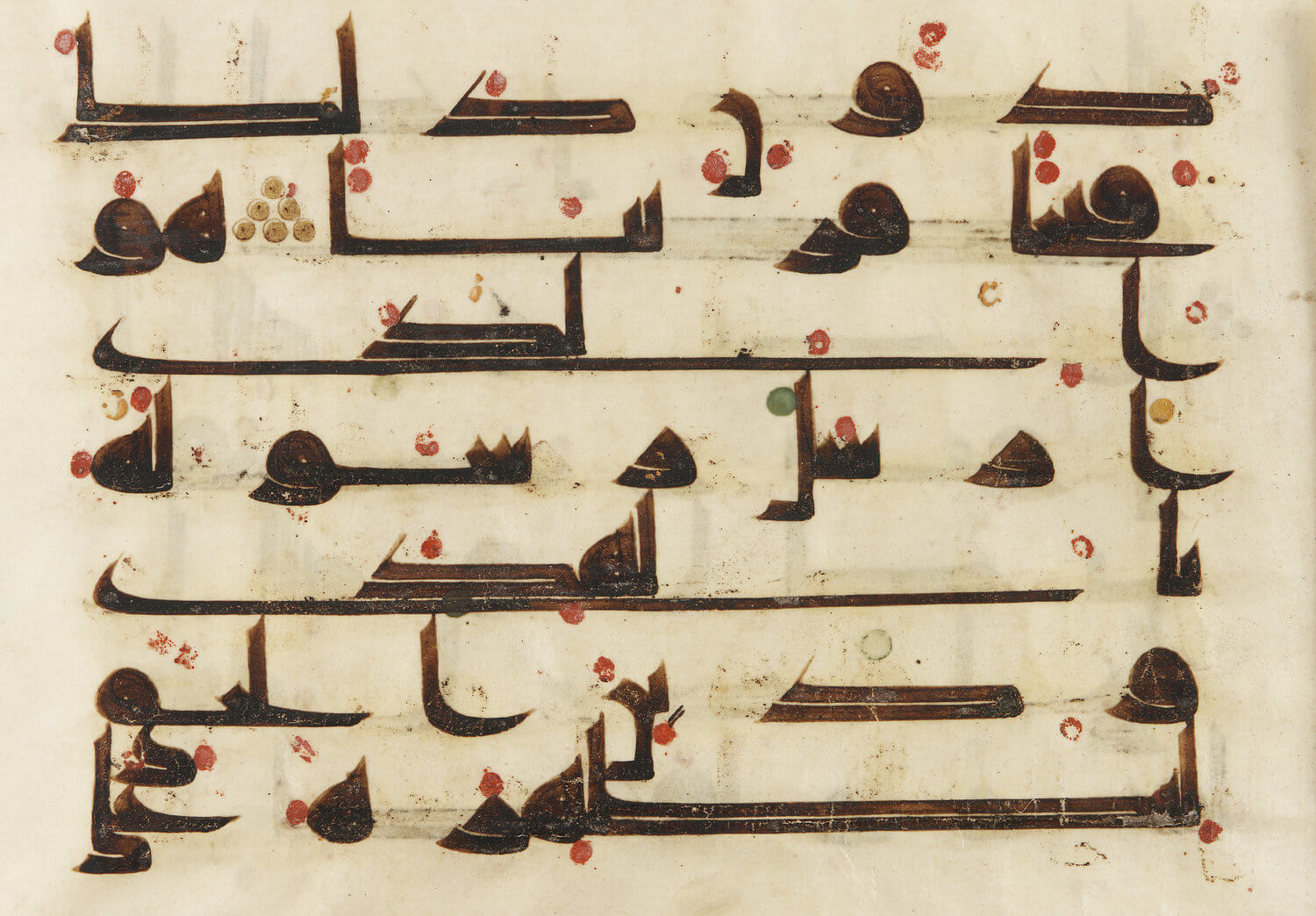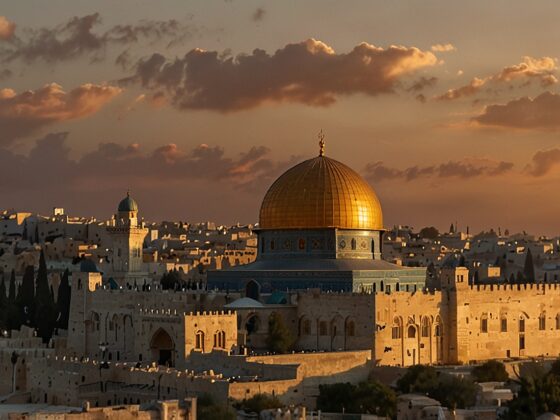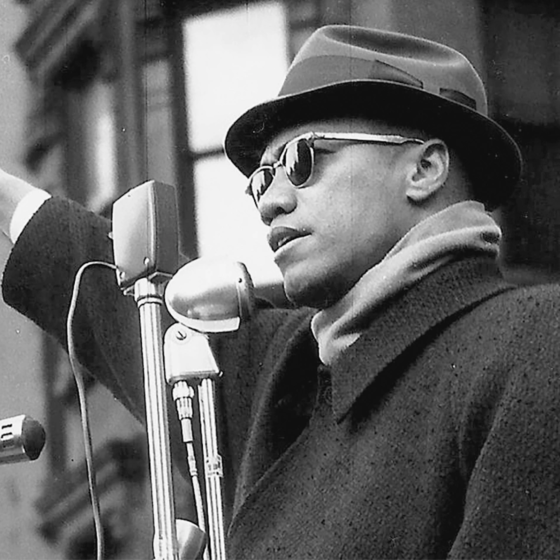In the West, the importance of countering the anti-Muslim propaganda orchestrated by journalists, politicians and orientalists has been underestimated for far too long. The silence of the Muslim community in face of this fanatical campaign has only emboldened the islamophobes in their media crusade, making them more daring as time goes by.
Rebuking the slander, defamation, and ambiguities of Islam’s enemies is a struggle that the Muslim scholars have been waging for over 14 centuries. This long tradition of Jihaad with the tongue commenced back in the early stages of Prophet’s exemplarily struggle for the cause of Islam. In his book Zaad al-Ma’aad, Ibn Qayyim explains:
“The Prophet ﷺ mastered all forms of Jihaad striving for Allah in the manner that Allah deserves. One day, he would strive with his heart and soul propagating and clarifying Islam. Another day, he would use his sword and shield in this struggle. His whole life was devoted to striving with his heart, tongue and hand. Due to this he reached the highest grade of eminence that mankind can attain and the highest rank of pleasure with Allah.” [1] Ibn Qayyim “Zaad al-Ma’aad” Vol.3, p.5
In Western countries, this struggle by the tongue has, until this very day, never really been a focus of concern, nor has it been seriously addressed. Even within Muslim Media itself, the written and verbal battlefield often remains ignored due to the major religious ignorance of this obligation and on how to properly apply it. Nevertheless, the obligatory categories of Jihaad have been clarified and expounded in the Quraan and in uncountable prophetic narrations. In the following hadeeth, the obligation of the often neglected Jihaad of the Tongue is clearly mentioned; Anas Ibn Malik narrated that the Prophet ﷺ said: “Strive against the polytheists with your hands, tongues and wealth.”[2] Reported by Imaam An-Nassaaee, Book of Jihaad, Chapter ‘The obligation of Jihaad’, authenticated by Imaam Al-Albaanee.

At his time, Shaikh Abdul Azeez ibn Baaz was well aware of the wide extent and sphere of this weighty battle. To him, Jihaad by the tongue also needed to be waged within the Media in all of its forms if Muslims really wanted to make a serious attempt in combating the Ideological War that the West has been wagging for centuries to corrupt Muslim minds and moral. The previous Mufti said in his explanation of the term “tongues” in this hadeeth: “This clarifies the importance of the role that the media play’s in the affairs of the Muslims.” [3]“Collection of Fataawa of Ibn Baaz”, Vol.14, p. 209.
In the beginning of the 18th century, Shaikh Abul Hassan As-Sindee mentioned in the explanation of “tongues” in this same hadeeth: “This is done by establishing clear proofs and using vilifying poetry along with prohibition and censorship (of evil).” [4]As-Sindee “Explanation of Sunnan An-Nasaaee”
Undoubtedly, the Jihaad of words is first and foremost based on knowledge and religious proofs. This was an essential component in the struggle that the Prophet ﷺ waged against the Arab pagans. In his explanation of the verse “do not obey the Disbelievers and seriously struggle against them using it (the Quraan)” [5]Al-Furqaan 52, Ibn Qayyim states:
“This is a Meccan Surah in which the Prophet ﷺ was ordered to strive against the Disbelievers with clear proof and clarification proclaiming the revelation of the Quraan.”[6]Ibn Qayyim “Zaad al-Ma’aad” Vol.3, p.5
After sufficiently learning one’s Deen and before gathering proofs and unsheathing one’s pen to denounce islamophobic militants, it is important to understand some important concepts of this verbal Jihaad as explained by the scholars…
ISLAM’S POETS
The Religion of Islam orders the believers to adopt exemplary behavior, which includes politeness to others and addressing them in the best of manners. “And Say to My slaves (i.e. the true believers of Islamic Monotheism) that they should (only) Say those Words that are the best.”[7] Al-Israa 53
Likewise, insulting polytheists has been prohibited out of fear that they will insult Allah . “And insult not those whom they (disbelievers) Worship besides Allaah, lest they insult Allaah wrongfully without knowledge” [8]Al-An’aam 108
However, in certain cases it is allowed to adopt some hardness when responding to non-Muslims. In the time of the Messenger ﷺ this was done by means of “al-hijaa”, a form of satirical poetry widely-known amongst Arabs and practiced until this very day in the Muslim world [9]This is an example of “al-hijaa” performed by members of a Yemeni tribe in response to the Houthis : http://www.youtube.com/watch?v=bnZm6Jhk9f8a .
Amongst Arab tribes, “al-hijaa” was the equivalent, at a smaller scale, of contemporary media through which the enemy can be stigmatized or belittled. The Arab polytheists used “al-hijaa” to ridicule the divine revelation and to disparage the Prophet Muhammad ﷺ. In return, the companions retorted with blood shedding verses in a Jihaad of poetry that would sometimes turn out to be very devastating.
Based on this historical context, the scholars have determined that the prohibition of mocking and slandering non-Muslims is only applicable when the disbelievers hold their tongues and do not slander Islam or the Muslims.
Islam forbids poetry if it preoccupies the believer and leads him to neglecting his religious duties and studies, supplication and the reading of the Quraan. However for obvious reasons, “al-hijaa” is an exception to this general prohibition. In the explanation of the verse “and We have not taught him (The Prophet) poetry and it does not befitting for him…” [10]Ya Sîn 69, Ibn Kathîr states :
“…while bearing in mind that some poetry is allowable like poetry that contains the vilification of Polytheists. This is the type of poetry that the Poets of Islam used to recite such as Hassaan ibn Thaabit, Ka’ab ibn Maalik, Abdullah Ibn Rawaahaa and others like them…”
Indeed, the three companions Hassaan Ibn Thaabit, Ka’ab Ibn Maalik and Abdullah Ibn Rawaaha are considered to be Islam’s biggest and foremost poets. They wrote down rhymed verses to ridicule the polytheists in an aggressive manner, hence defending the Prophet’s honor ﷺ in a poetic Jihaad that would rage throughout the whole of the Arabic peninsula…
‘MORE VEXING THAN THE ARROWS OF A BOW’
During the period of revelation, the person who was known most for his slander of the Prophet ﷺ by the means of “al-hijaa” was the Jewish Arab Ka’ab Ibn Achraf. He owned two slave girls and used to order them to mock the Prophet ﷺ in public. Of course, the companions weren’t people to be trifled with and some of them showed off their poetic talents by scribbling down some lyrics to humiliate the polytheists of Quraish. The incorporation of Islamic Al-Hijaa into the Muslim Community introduced a new fearful weapon in the hands of the Faithful Muslims that vexed and harmed the Pagan Arabs more than an armed assault could ever do.
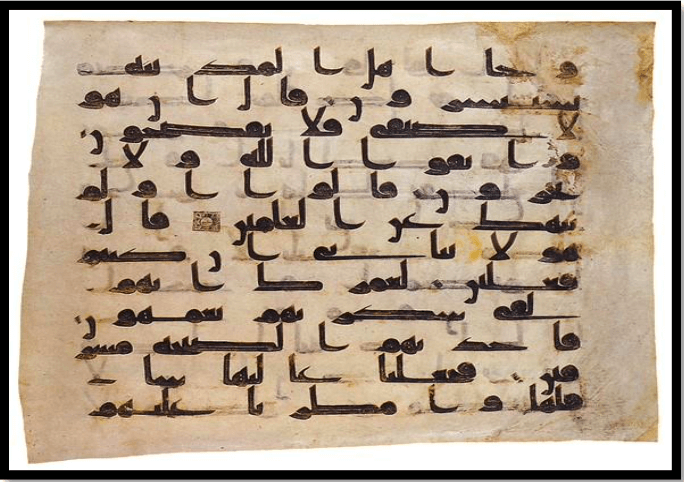
In his explanation of the verse “strive hard with Your wealth and Your lives In the Cause of Allaah”[11] Al-Tawba 41, Ibn Taymiyya exquisitely describes how the Prophet ﷺ ordered the best of the poets to attack the disbelievers with “al-hijaa”:
“Jihaad with your person includes jihaad with your tongue just as it includes jihaad with your hands. Indeed jihaad with the tongue can be more effective than jihaad with the hands. The Prophet ﷺ said, as reported by Imaam An-Nasaaee: ‘Strive against the polytheists with your hands, tongues and wealth.’
The Prophet ﷺ used to say to Hassaan ibn Thaabit : ‘Attack and ridicule them.’ A minbar used to be placed (set up??) for him in the masjid to recite his poetry in defense of the Prophet ﷺ and to ridicule of the disbelievers. The Prophet ﷺ invoked in his favor saying “Oh Allah, fortify him with the Ruh-al-Qudus”. He ﷺ also told Hassaan: “Jibraeel is with you as long as you’re defending the Prophet ﷺ” He also said “It (i.e. the poetry of Hassaan) is more vexing to them than arrows.” Many polytheists used to refrain from harming the believers out of fear of the ridicule of Hassaan”
Indeed, when the enemies of the Islam know and are certain that they will get ridiculed or humiliated if they slander the honor of Muslims, it will cause them to be more reluctant and think twice before venturing on such a perilous avenue where there are new and unexpected losses at stake. Shaikh al-Islam continuous by explaining to which degree “al-hijaa” could affect the Prophet’s detractors:
“On one such occasion Ka’ab ibn Al-Ashraaf visited Mecca and every time he was put up as a guest in a particular house Hassaan would ridicule Ka’ab with some poetry forcing his hosts to expel him (out of social pressure). This continued to happen until Ka’ab could not find anyone in Mecca to put him up as a guest!”
These words of Shaikh al-Islam do not only show the importance of defending the Prophet’s honor ﷺ, but they also indicate that Jihaad with words, whether it be by the tongue or the pen, can not only bring about the humiliation of those who disparage the Islamic faith but also make them social outcasts and even lead to their marginalization, boycotting and government banning.
Imaam al-Hafidh Ibn Hajr said in explanation of the Prophet’s ﷺ ordering of Hassaan to vilify the polytheists:
“In this hadeeth lays a proof for the permissibility of vilifying the polytheists in response to their vilifying of the Muslims. This does not contradict the general prohibition of vilifying the polytheists so as to avoid their vilifying of the Believers which is in the context of instigation but rather it is in the context of responding to the disbelievers in aid of the Believers.” [12]Fath-al-Baaree, Vol.10, p. 547
Moreover, these kinds of rebuttals are acts of worship as-Sindee asserts in his explanation of the Prophet’s statement ﷺ “with the Ruh-al-Qudus”:
“This is Jibreel and this is an indicator that disparaging the disbelievers is the most virtuous of deeds and it is only to be done in response as was the case here (to the disparaging of the disbelievers) otherwise it is prohibited due to the statement of Allah “and do not vilify those that invoke other than Allah thus causing their vilification of Allah out of ignorant enmity” [13]“Explanation of Sahih Al-Bukharee”, Vol.4, p.141
ONE OF THE BEST JIHAADS IN OUR TIME
Certain types of Jihaad shed blood, others ink. Numerous prophetic hadeeths clearly show that Jihaad is much wider than just meeting the enemy with your sword and is indeed much wider and mult-faceted than many have been lead to believe. In reference to some verses that were revealed in Sura Ya-Sin, the Prophet ﷺ said: “The believer fights with his sword and his tongue.” Then, while addressing himself to one of the poets, he said: “I swear by the One who holds my soul, the words that you hammer them with are like a rain of arrows to them” [14]Al-Bayhaqi “Sunan Bayhaqi al Kubra” and authenticated by al-Albâni in « Silsila al-Sahîha » no.21639
However, it was the mighty poetry of Hassaan Ibn Thaabit that was the most influential and proved to be the more decisive in the battle against the Arab polytheists. Imaam Muslim reported in the Book ‘Virtues of the Companion’ in the Chapter ‘Virtues of Hassaan ibn Thaabit’ that Aisha said “I heard the Messenger of Allah ﷺ say: ‘Hassaan vilified them. He has healed and was healed’.”
Imaam An-Nawawee said in explanation of this statement: “Meaning he healed the believers and he was healed himself by the way in which he reached and shattered the very honor of the disbelievers (with his vilifying poetry against them) and by his defense of Islam and the Muslims.” [15]Hadeeth # 2490
Indeed, when the enemies of Islam are put in check in response to their disparagements towards Islam and the Muslims, it provides relief within the Muslim community. The believers are comforted when they see that injustice has been fought and that the honor of their women defended. It is the same relieve, comfort and healing that the Companions felt when hearing Hassaan’s poetry.
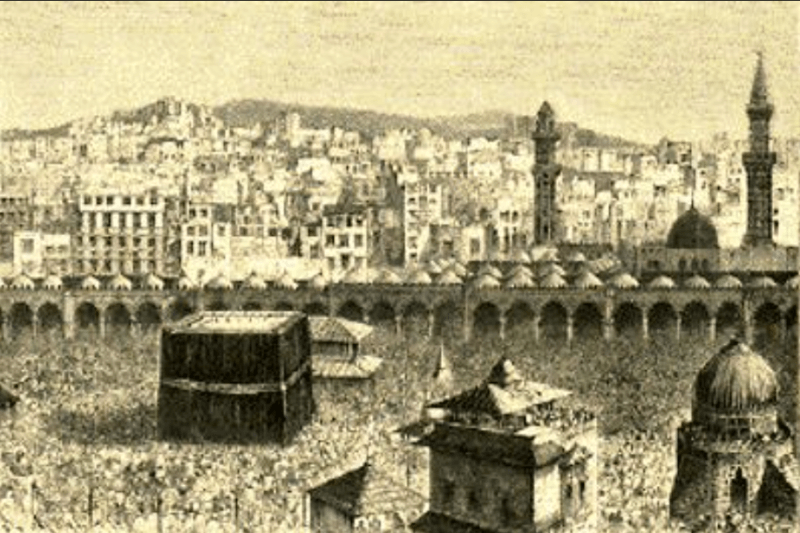
The struggle led by the poets of Islam clearly indicates that Jihaad, whether it is being waged by the pen or the sword, unites the hearts of the believers and strengthens their ranks. There is an important lesson to be taken from the life of the Salaf beautifully summarized by Ibn Taymiyya in this momentous statement: “Whenever this Ummah strives against their enemy Allah unites their hearts. And whenever they abandon this struggle He preoccupies them with each other.” [16]Sheikh al-Islâm Ibn Taymiyya “Jâmi’ al-Masâ’il” p.300
This is a lesson from the past that many Muslims in our present time seem to have forgotten. It would be incorrect to believe that Jihaad by words is restricted to satirical poetry. Imaam As-Sana’anee said in explanation of the previously mentioned hadeeth:
“Jihaad is also waged with the tongue by establishing clear proofs upon the enemies and calling them to Allah and by rebuking them and by raising voices when engaging and by any verbal means that annoys and vexes them.” [17]“Subul as Salaam”, Vol.4, p.87
In a hostile world where information circulates reaching one end of the world to the other in a matter of seconds, it is incumbent upon us to defend the Prophet’s honor and the honor of Islam. Never before have the doors of Jihaad by the tongue been more open than now and never before has there been such an urgent need to enter them. In a response to the Arab liberals, the Muhaddith of Madeenah Shaikh ‘Abd al-Mohsin al-‘Abbaad states:
“Striving against the sick hearts of desires and doubtful affairs by the pen and tongue is the Jihaad in the Path of Allah that is easily obtainable in this era.” [18]Sheikh ‘Abd al-Mohsin al-‘Abbâd « Lâ Yalîq Ittighadh Ism ‘Khadîja Bint Khuwaylid’ ‘Unwânan Li Infilât al-Nisâ »
With a wide range of communication means and tools available at the tip of our fingers, it has never been easier to reach the enemy and verbally neutralize him. These rebuttals might even force islamophobes to renounce the disparagement of Muslims. Nevertheless, this contextual facility doesn’t mean that everyone is appropriate and qualified to embrace and enter this struggle. Ibn Qayyim, amongst many others, has declared that the Jihaad by the tongue is often more arduous than the standard armed Jihaad :
“Jihaad of the Hypocrites is more difficult that Jihaad of the disbelievers. This is the Jihaad of a select few who are the inheritors of the Prophets (the peace and blessings of Allah be upon them). Its combatants are individuals sharing this task and cooperating upon it and though they may be few in numbers their status with Allah is immense…” [19]Ibn Qayyim “Zaad al-Ma’aad”, Vol.3, p.5
More than ever before, the Muslim community finds itself under the slanderous attacks of islamophobes, racists, extreme liberals and hypocrites. Fighting these morally bankrupt bigots, their erroneous assumptions and plots against Islam is one the greatest Jihaad’s of our time as Shaikh al-‘Abbaad reminded us:
“Striving against the Hypocrites by clarifying their immorality and corruption and striving in censoring them is one of the greatest Jihaad’s (in the Path of Allah) of this time.” [20]Sheikh ‘Abd al-Mohsin al-‘Abbâd “Râfidiy Jadîd Yachtim al-Siddîq wa al-Fârûq Yasub wa al-Dawla al-Saûdiya”
Indeed, this is one of the most virtuous types of Jihaad that has been made easy in our time. Nonetheless, it seems that this battle if often forgotten and neglected in the West. Here, the Muslims are still eagerly waiting in light of the slanderous unrelenting campaign of the islamophobes for a relieving defense of Islam that will restore their pride and dignity allowing the Faithful Muslims to once again raise their lowered heads just as they did in the time of Hassaan Ibn Thaabit…
Shaakir McGill & Kareem El Hidjaazi
Jihaad by the Tongue – The … by Kareem El Hidjaazi
Références
| ↑1 | Ibn Qayyim “Zaad al-Ma’aad” Vol.3, p.5 |
|---|---|
| ↑2 | Reported by Imaam An-Nassaaee, Book of Jihaad, Chapter ‘The obligation of Jihaad’, authenticated by Imaam Al-Albaanee. |
| ↑3 | “Collection of Fataawa of Ibn Baaz”, Vol.14, p. 209. |
| ↑4 | As-Sindee “Explanation of Sunnan An-Nasaaee” |
| ↑5 | Al-Furqaan 52 |
| ↑6 | Ibn Qayyim “Zaad al-Ma’aad” Vol.3, p.5 |
| ↑7 | Al-Israa 53 |
| ↑8 | Al-An’aam 108 |
| ↑9 | This is an example of “al-hijaa” performed by members of a Yemeni tribe in response to the Houthis : http://www.youtube.com/watch?v=bnZm6Jhk9f8a |
| ↑10 | Ya Sîn 69 |
| ↑11 | Al-Tawba 41 |
| ↑12 | Fath-al-Baaree, Vol.10, p. 547 |
| ↑13 | “Explanation of Sahih Al-Bukharee”, Vol.4, p.141 |
| ↑14 | Al-Bayhaqi “Sunan Bayhaqi al Kubra” and authenticated by al-Albâni in « Silsila al-Sahîha » no.21639 |
| ↑15 | Hadeeth # 2490 |
| ↑16 | Sheikh al-Islâm Ibn Taymiyya “Jâmi’ al-Masâ’il” p.300 |
| ↑17 | “Subul as Salaam”, Vol.4, p.87 |
| ↑18 | Sheikh ‘Abd al-Mohsin al-‘Abbâd « Lâ Yalîq Ittighadh Ism ‘Khadîja Bint Khuwaylid’ ‘Unwânan Li Infilât al-Nisâ » |
| ↑19 | Ibn Qayyim “Zaad al-Ma’aad”, Vol.3, p.5 |
| ↑20 | Sheikh ‘Abd al-Mohsin al-‘Abbâd “Râfidiy Jadîd Yachtim al-Siddîq wa al-Fârûq Yasub wa al-Dawla al-Saûdiya” |
